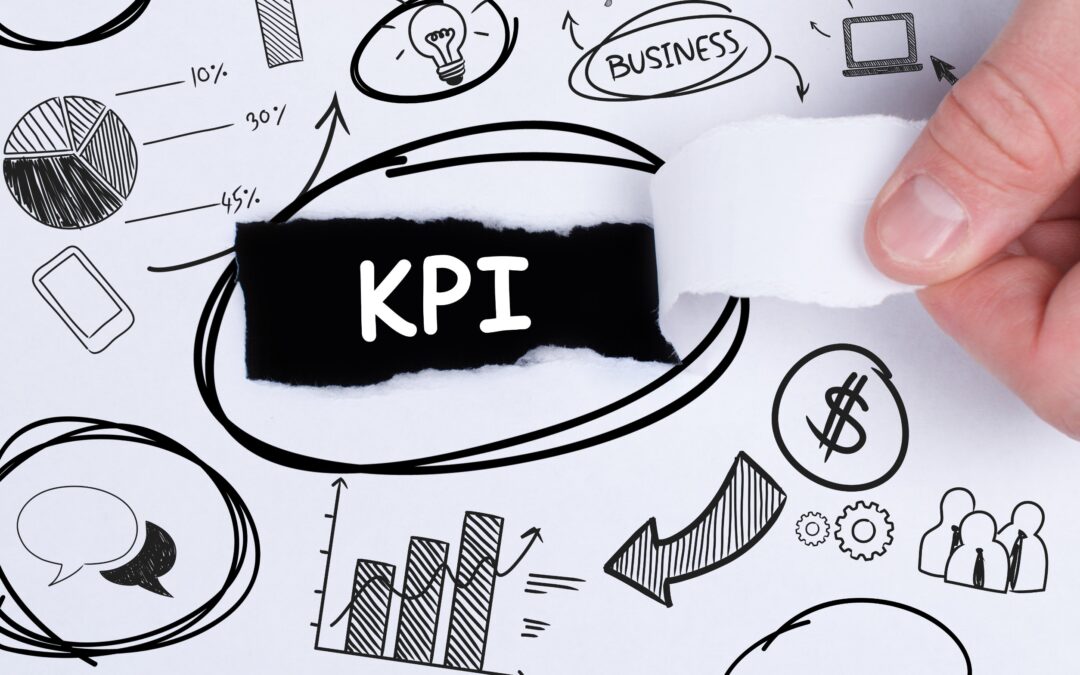As a small business owner, you know that success or failure may come down to the numbers. Having an accurate understanding of your key financial performance indicators (KPIs) can inform successful decision-making and help guide your strategy towards growth.
But what are KPIs, and how do they impact the health of your small business? In this blog post, we’ll explore small business KPI metrics so you can have clear insight into what matters most for driving profitable business results.
Overview of Small Business Financial KPIs
Small businesses face numerous challenges in their daily operations, with financial management being one of the most important. Key Performance Indicators (KPIs) can greatly assist small business owners to track and evaluate their financial performance.
In essence, KPIs are quantifiable measurements that help businesses gauge their success in achieving their objectives. Small business owners need to determine the relevant KPIs for their particular business to help identify areas that need improvement, chance profitability modeling, cost control and optimize operations.
By monitoring KPIs regularly, small business owners can make informed decisions and react appropriately to changes in the market and in the business itself. Ultimately, implementing and tracking financial KPIs is critical for driving long-term success and building a solid financial foundation for any small business.
Financial KPIs that small businesses should measure
1. Gross Profit Margin: This key financial KPI illustrates the efficiency of your business in managing its cost of goods sold (COGS). Calculated by subtracting COGS from revenue and dividing the result by revenue, a higher gross profit margin indicates healthier financial performance.
2. Net Profit Margin: It’s your company’s bottom line, demonstrating profitability after all expenses have been deducted from revenues. It’s an excellent measure of your company’s overall operational efficiency.
3. Operating Cash Flow: This KPI measures the cash generated from your business’s primary operations. It’s crucial to understand the health of your business’s core operations and its ability to generate profits.
4. Current Ratio: This KPI measures your business’s ability to pay back short-term liabilities with short-term assets. A ratio greater than one indicates that the business is in a good position to cover its current obligations.
5. Inventory Turnover: This KPI represents how many times your business has sold and replaced its inventory during a certain period. A higher turnover rate can indicate strong sales or effective inventory management.
6. Accounts Receivable Turnover: This KPI measures how efficiently your business collects payments from its customers. A higher ratio can indicate effective credit and collection processes.
7. Liquidity Ratio: This KPI measures your business’s ability to quickly convert its current assets into cash to cover its liabilities. It’s an important measure of short-term financial health.
8. Debt-to-Equity Ratio: This KPI measures the amount of debt a company has relative to its equity and is used to assess a company’s financial leverage.
9. Break-Even Point Analysis: This KPI measures the amount of revenue that must be generated to cover all costs related to product or service production and delivery. It can provide insight into pricing strategies, profitability potential, and cost control.
Non-financial KPIs that businesses should measure
In addition to financial KPIs, there are also non-financial KPIs that are crucial for small businesses. These KPIs can give you a more holistic view of your business’s performance and provide insights into areas such as customer satisfaction, operational efficiency, and employee performance. They include:
1. Customer Satisfaction Score (CSAT): This KPI measures how satisfied your customers are with your products or services. A high CSAT score can indicate a high level of customer satisfaction, which can lead to repeat business and referrals.
2. Net Promoter Score (NPS): This KPI measures customer loyalty and the likelihood that your customers would recommend your business to others. A high NPS can be a strong indicator of customer loyalty and positive word-of-mouth promotion.
3. Employee Turnover Rate: This KPI measures how often employees leave your company. A high employee turnover rate can indicate problems with employee satisfaction or engagement and can lead to increased recruitment and training costs.
4. Average Resolution Time: This KPI measures the average time it takes for your business to resolve customer issues or complaints. A lower average resolution time can indicate effective customer service and can lead to higher customer satisfaction.
5. Conversion Rate: This KPI measures the percentage of potential customers who take a desired action, such as making a purchase or signing up for a service. A higher conversion rate can indicate effective marketing and sales strategies.
These non-financial KPIs, along with the financial ones outlined earlier, can provide a comprehensive view of your business’s performance and help inform strategic decision-making.
In conclusion
Understanding and tracking financial and non-financial KPIs is crucial for the success and growth of your small business. They provide a snapshot of your company’s performance, highlight areas that need improvement, and inform strategic decision-making. Remember, the key is not just to track these indicators, but to understand what they mean and how they interact with each other.
About SMB Strategy Consultants, LLC-
If you’re looking for reliable and efficient bookkeeping services for your business, SMB Strategy Consultants is your one-stop destination. Our mission is to empower you with good data and practical, proactive counsel. Accurate bookkeeping and strategic financial data equip a business owner with a strong foundation to make big decisions. We understand your vision and help you take your business there! Fill out our contact form, call us at 770-284-4313, or visit our website for more information about our services.


Recent Comments